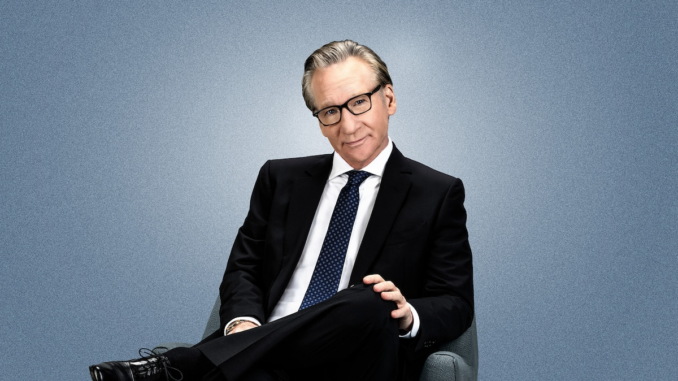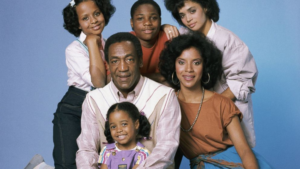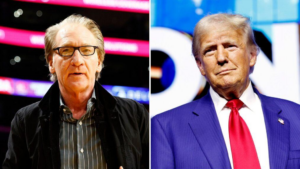
Bill Maher is never one to shy away from bold comparisons, and his latest jab at former President Donald Trump during Real Time with Bill Maher didn’t hold back. In his opening monologue, Maher took aim at both political candidates and cultural touchstones, but it was his analogy involving The Cosby Show that turned heads.
With the election looming, Maher offered his comedic take on the possibility of a second Trump presidency, drawing an unexpected parallel. “If Trump wins again,” Maher said, “it will be like rebooting The Cosby Show, with Bill Cosby.” This comparison struck at the heart of America’s complex relationship with both Trump and Cosby, two figures whose legacies have been marred by controversy but who still maintain a certain cultural hold.
The Cosby Show, once hailed as a groundbreaking sitcom showcasing a successful African-American family, became a symbol of family values and success. However, Bill Cosby’s later conviction for sexual assault turned that image upside down, with many grappling with the dilemma of how to reconcile their love for the show with the man behind it. Maher’s comparison draws a parallel between this moral struggle and the idea of reelecting Trump—suggesting that while the presidency, like a TV show, may seem familiar or entertaining to some, the man at the helm brings with him a tainted legacy that many would rather forget.
The Weight of Reboots and Legacies
Maher’s comment taps into a deeper conversation about how we handle the reboots of cultural touchstones. Just as The Cosby Show is forever associated with its disgraced star, a second Trump term would inevitably be linked to his controversial actions and statements over the years. It raises the question: Can America, or any culture, reboot its history without confronting the darker aspects of those involved?

The original Cosby Show was a beacon for many viewers. It introduced an African-American family to mainstream television, celebrating success, humor, and love. Cosby’s personal fall from grace cast a shadow over its legacy, forcing fans and critics alike to reconsider their admiration for the show. Maher’s comparison to a Trump presidency mirrors this uncomfortable reconciling process: Can we return to something—or someone—once we know what they’ve become?
Trump’s ‘Reboot’
Trump’s first term was filled with controversy, and a second term would undoubtedly reignite those flames. Maher humorously pointed out that Trump, already the oldest president in American history, could become even more emblematic of the nation’s struggle with aging icons. But just as The Cosby Show was eventually tainted by Cosby’s personal scandals, the idea of Trump returning to power would carry with it an undeniable weight of moral and ethical concerns.

Maher’s sharp wit and humor often land on such comparisons, reminding the audience that the world of politics, like entertainment, is full of characters who rise to fame, only to fall in the most public and disastrous ways. He suggested that reelecting Trump might feel like resurrecting something that was once beloved but ultimately stained by the actions of its star—a “reboot” no one asked for, much like the hypothetical return of The Cosby Show without its central figure’s integrity intact.
What Can We Learn from the Cosby Show?
For many, The Cosby Show was a cultural milestone, and its legacy endures despite the revelations about its star. Similarly, Trump’s influence on American politics is undeniable, and his supporters still find his political antics entertaining, even as his reputation continues to unravel. Maher’s comparison challenges viewers to consider how we separate the art (or the leadership) from the artist (or the politician). While we may have loved the show, or admired the performances, do we ignore the flaws of the person at the center? Can we separate the message from the messenger?
Ultimately, Maher’s sharp humor forces us to reflect on these questions, using The Cosby Show as an effective metaphor for understanding the complicated legacy of both the show and its creator. Just as the question of whether we can enjoy The Cosby Show without Cosby himself is a difficult one, so too is the question of whether we can embrace a second Trump presidency without the ethical dilemmas it brings.
